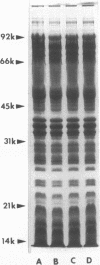Abstract
We investigated the influence of berberine sulfate, an ancient Chinese antibiotic, upon the adhesion of uropathogenic Escherichia coli to erythrocytes and epithelial cells. Although berberine sulfate in increasing concentrations had no effect on bacterial growth or on the synthesis of major outer membrane proteins of the E. coli organisms, it increasingly blocked adhesion. The decreased adhesion was accompanied by a reduction in the synthesis of fimbrial subunits and in the expression of assembled fimbriae. These results suggest that the anti-infectious activity of berberine sulfate in E. coli-induced urinary tract infections may be mediated by the selective suppression of the synthesis and assembly of fimbriae by uropathogenic organisms.
Full text
PDF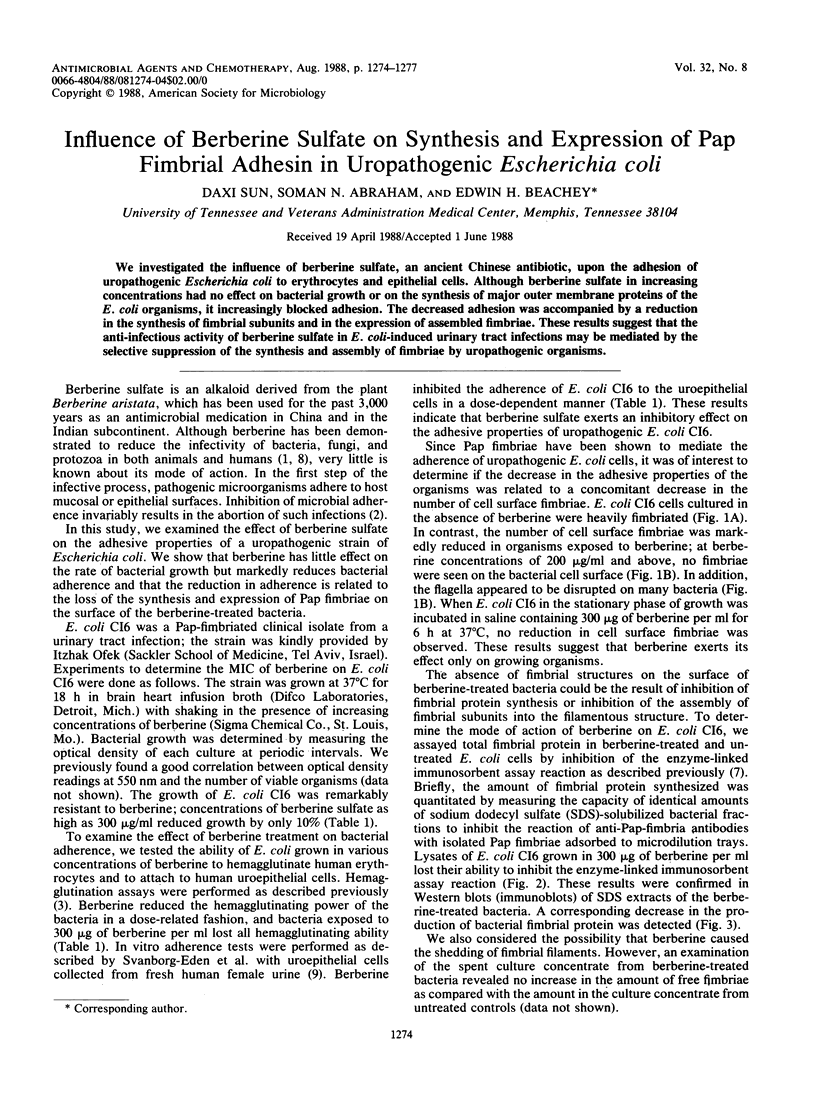
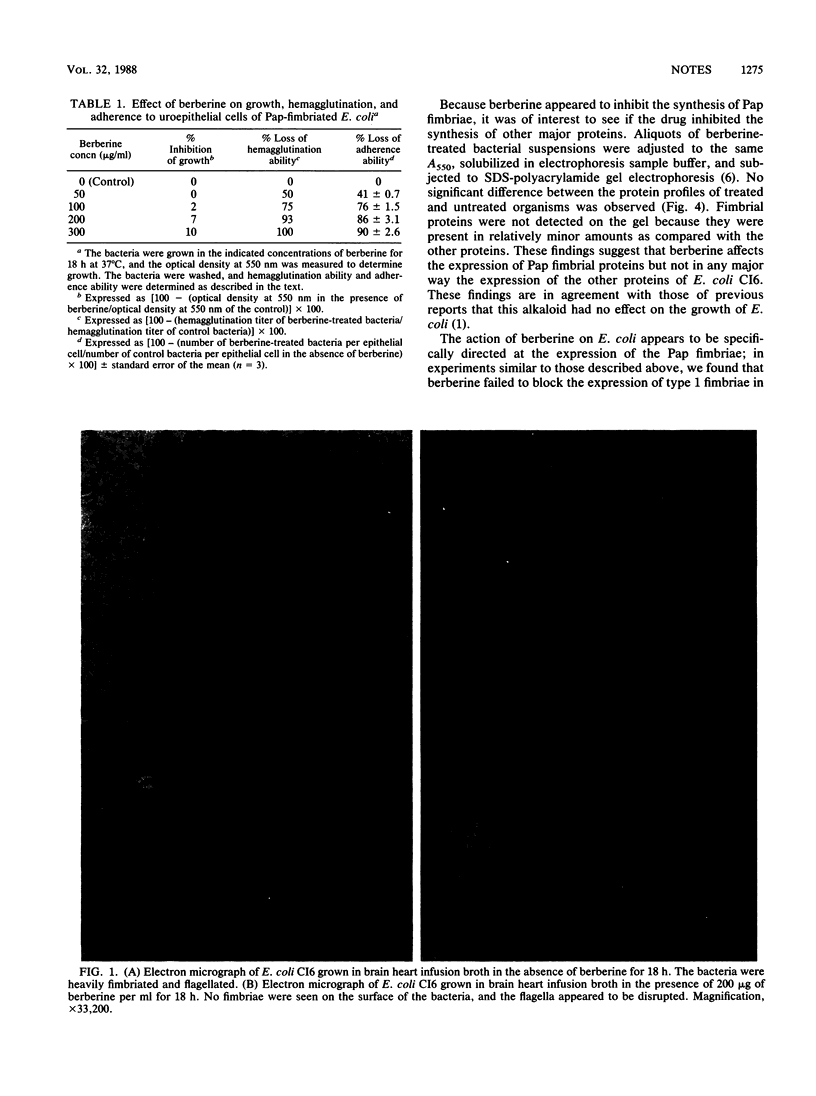
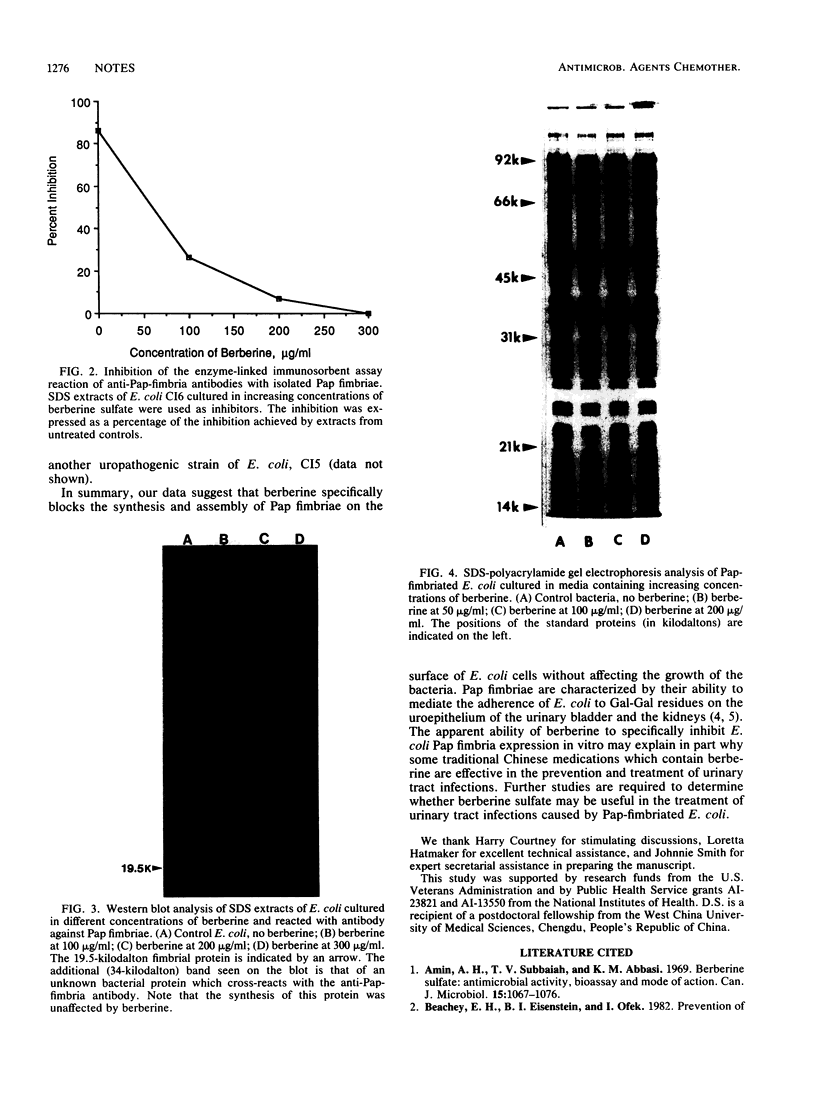
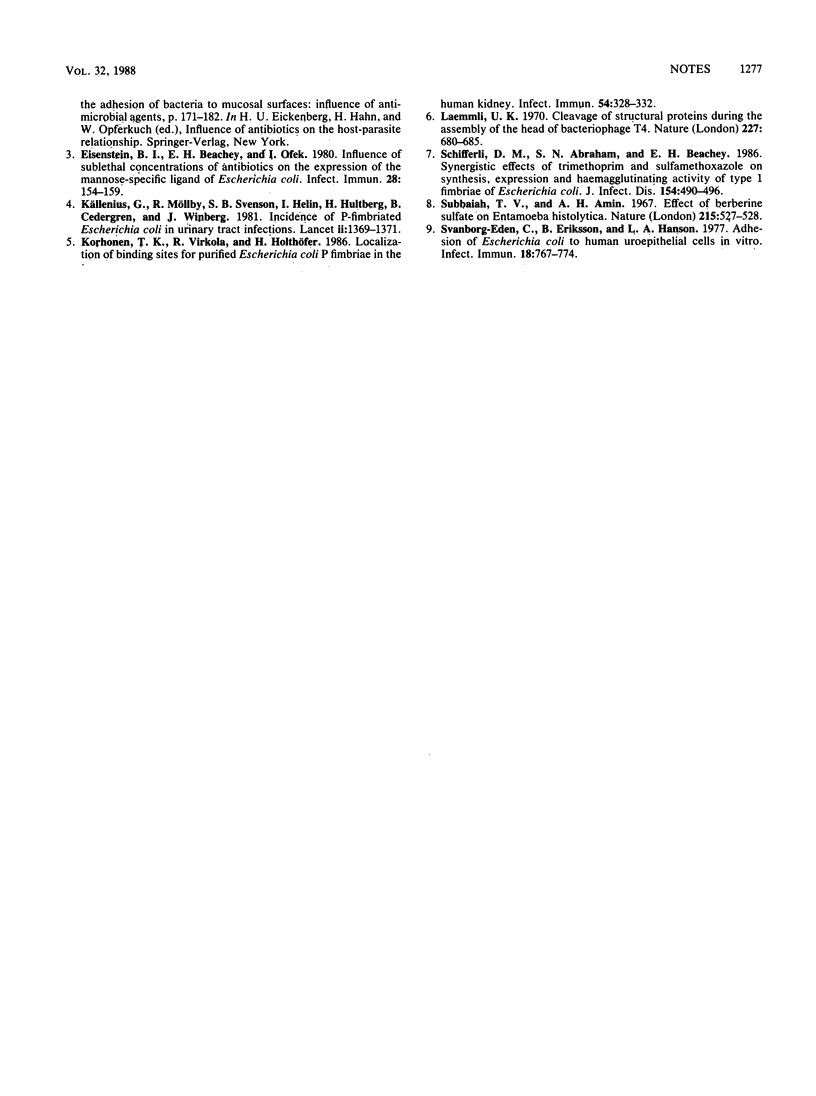
Images in this article
Selected References
These references are in PubMed. This may not be the complete list of references from this article.
- Amin A. H., Subbaiah T. V., Abbasi K. M. Berberine sulfate: antimicrobial activity, bioassay, and mode of action. Can J Microbiol. 1969 Sep;15(9):1067–1076. doi: 10.1139/m69-190. [DOI] [PubMed] [Google Scholar]
- Eden C. S., Eriksson B., Hanson L. A. Adhesion of Escherichia coli to human uroepithelial cells in vitro. Infect Immun. 1977 Dec;18(3):767–774. doi: 10.1128/iai.18.3.767-774.1977. [DOI] [PMC free article] [PubMed] [Google Scholar]
- Eisenstein B. I., Beachey E. H., Ofek I. Influence of sublethal concentrations of antibiotics on the expression of the mannose-specific ligand of Escherichia coli. Infect Immun. 1980 Apr;28(1):154–159. doi: 10.1128/iai.28.1.154-159.1980. [DOI] [PMC free article] [PubMed] [Google Scholar]
- Korhonen T. K., Virkola R., Holthöfer H. Localization of binding sites for purified Escherichia coli P fimbriae in the human kidney. Infect Immun. 1986 Nov;54(2):328–332. doi: 10.1128/iai.54.2.328-332.1986. [DOI] [PMC free article] [PubMed] [Google Scholar]
- Källenius G., Möllby R., Svenson S. B., Helin I., Hultberg H., Cedergren B., Winberg J. Occurrence of P-fimbriated Escherichia coli in urinary tract infections. Lancet. 1981 Dec 19;2(8260-61):1369–1372. doi: 10.1016/s0140-6736(81)92797-5. [DOI] [PubMed] [Google Scholar]
- Laemmli U. K. Cleavage of structural proteins during the assembly of the head of bacteriophage T4. Nature. 1970 Aug 15;227(5259):680–685. doi: 10.1038/227680a0. [DOI] [PubMed] [Google Scholar]
- Schifferli D. M., Abraham S. N., Beachey E. H. Influence of trimethoprim and sulfamethoxazole on the synthesis, expression, and function of type 1 fimbriae of Escherichia coli. J Infect Dis. 1986 Sep;154(3):490–496. doi: 10.1093/infdis/154.3.490. [DOI] [PubMed] [Google Scholar]
- Subbaiah T. V., Amin A. H. Effect of berberine sulphate on Entamoeba histolytica. Nature. 1967 Jul 29;215(5100):527–528. doi: 10.1038/215527a0. [DOI] [PubMed] [Google Scholar]




